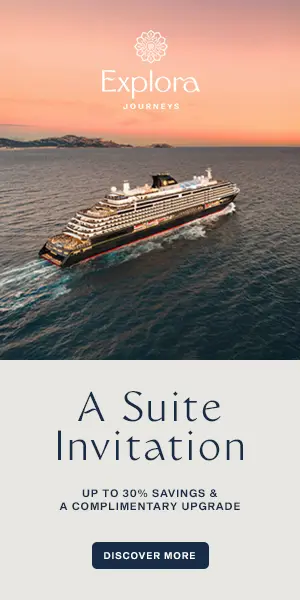Tips for Planning a Safari for LGBTQ+ Clients
by Dori Saltzman
Photo: Shutterstock.com
For many travelers, safaris are a bucket list item. There are all kinds of considerations when planning a safari, but for gay travelers those considerations also include more than what animals they want to see or what kind of safari lodge they want to stay at.
TMR reached out to several experts to find out what travel advisors need to know when planning a safari for their LGBTQ+ clients. (This article does not cover the needs of trans travelers, who have more specific requirements, and often restrictions, that affect their ability to travel to certain places.)
Vette Suppliers
If there’s one piece of advice we heard over and over again, it’s to choose the supplier you work with carefully.
“The biggest one is finding a tour operator or DMC that knows the space,” said Scott Wismont, CTA, owner of Rainbow Getaways. “They know which hotels are good for us. They’re able to talk to the tour guides and make sure that they know who we are.”
Wismont has a list of suppliers that are members of the International LGBTQ+ Travel Association (IGLTA) that he’s met at conferences that he keeps on hand.
If a company is not a member of IGLTA, he always asks: “This is what these clients are, are you able to accommodate this? Do you have experience with this?”
“If you have a supported safari trip, they’re going to keep you safe and not put you in areas that are not safe,” added Sandie Anders, a travel advisor at Bursch Travel.
Rob Swanepoel, founder of the South Africa-based African Studio, a tour operator providing customized safaris, also told TMR that vetting companies to ensure they have experience with gay travelers is critical.
He does it himself for his own travels.
“When I’m looking for a supplier in a country that I’m visiting with my family, I need them to know that it’s a same sex relationship and we are traveling with an adopted son,” he said. If a company doesn’t have experience with gay travelers, he moves on to another company.
Another option is to select a gay charter company that offers safaris, said Michael Bray, owner of Braycation Travel.
“I just recently had four different couples successfully complete their first gay Africa charter,” he told TMR.
Another reason for using a trusted and experienced tour operator or DMC is because they can provide in-country support.
“There’s very little I can do if something goes wrong, but the DMC has people on the ground that can help out. They are better prepared for any eventualities that might happen,” Wismont explained.
Open Conversations with Suppliers…
Open and honest conversations are a key piece of planning a safari for a client who is member of the gay community. If they don’t tell you they’re gay, you can’t tell the supplier. If you don’t tell the supplier, they can’t talk to the tour guides or safari camps to prepare them.
“It’s having the conversation with the tour operator to say, this is a gay couple, as long as the couple is okay being identified with the tour operator,” Bray said.
“As long as they know about it, then they can let their suppliers know about it and they will those conversations with the suppliers, so the guest doesn’t need to,” Swanepoel added.
… and Clients
Conversations with the client about what to expect and how to behave or equally as important as conversations with the supplier.
“I never want to send anyone to any destination regardless of their sexual preference that’s going to make them feel uncomfortable,” Anders told TMR. “Once I have an itinerary to present to someone, I look to make sure that everything is laid out in terms of information. So, I have those conversations.”
These conversations might include telling clients not to hold hands when in certain cities, or not to be surprised if they get two beds instead of one – which sometimes happens even after the supplier has told the safari camp to prepare one bed.
“When you’re going to countries that have stricter laws, they really want to get to know their client to make sure they can have that conversation with the client about what to expect,” Wismont said.
Conversations about destinations with stricter laws or more conservative residents are important, Bray told TMR, because “If they’re like, I’m going to be who I am, then maybe that’s not the right place for you at this time.”
Swanepoel told TMR it’s exactly the same type of conversation advisors might be having with women going to Arabic countries.
“Women need to cover their heads, cover their bodies, and just respect the culture. It’s in that same sort of vein,” he said.
Part of the conversation might also be asking about medications clients take – something that is of particular importance to trans clients. Some of these medications, Wismont said, are illegal in several African countries.
Frequently Asked Questions
When asked what the most common questions their LBGTQ+ safari clients have, safety was the top question, particularly for couples with children. But topics like public displays of affection (PDA) and bedding were also common.
“One is safety. Are they going to feel safe? … when they’re walking around, when they’re at restaurants?” Bray said.
“The next thing they want to know is which hotels to work with so they can get you into a king bed and the hotel’s not going to bat an eye, whereas some hotels are, let’s put you in two rooms, let’s split up this bed,” Wismont said.
It’s something Bray brings up with his clients too.
“For LGBTQ+ clients, help me understand the bedding, I’ll make sure it’s there so it’s not one more thing they have to go down to the front desk for,” he said.
Whether a client asks about PDA or not, depending on the destination (Tanzania and Kenya, for instance) advisors should bring the topic up.
“Yes, you love each other, and you might, by mistake, give each other a peck on the cheek. That can cause a bit of problems. They need to understand that… the lodges are fine, the hotels are fine. It’s the in-between traveling,” Swanepoel said.
Double Check the Destination
Swanepoel told TMR that while Africa is a conservative continent most of the main safari destinations are generally safe for LGBTQ+ travelers.
Everyone TMR spoke with agreed that South Africa is the safest and most welcoming of the options. They all also agreed Uganda is not and should be avoided.
Botswana is also safe, Swanepoel said, as are the Seychelles, which are sometimes bundled into a safari trip.
Two of the most well-known safari destinations among North American travelers, Tanzania and Kenya, are also generally safe, but require more cultural awareness, particularly when not actively on safari. Swanepoel called out Arusha in Tanzania as a place where same sex couples should avoid any overt displays of affection.
If you’re unsure, do some research, both Bray and Anders said.
Most importantly, Anders added, don’t assume anything. Ask the supplier or the DMC.






















